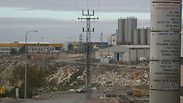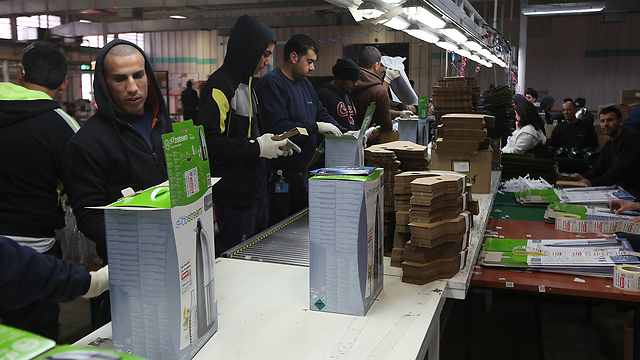
The sum of our financial fears: What if the PA collapses?
Analysis: Twenty-five percent of the Palestinian economy relies on Israel. Without the connection to Israel that Palestinian self-rule ensures, the West Bank will turn into a second Gaza.
About 20 years ago, when the Israeli government handed control over to the Palestinian Authority, there were fewer than 10,000 people working in Palestinian governmental institutions. Mostly workers of the education and health systems, they were supervised by a few Israeli staff officers.
Today, there are more than 150,000 people working in the Palestinian government offices, in addition to civil servants and pensioners, who provide for about one million people. The Palestinian government's budget is about NIS 16 billion (roughly $4 million). A significant part of it comes from donations from countries around the world.
If the Palestinian Authority is dismantled, who will pay for all that? Who will head the offices and the services? Not to mention the huge security costs, led by an increased deployment of the IDF.

Economic circumstances are among the reasons stopping Palestinian President Mahmoud Abbas from acting on the threat to renounce the Oslo Agreements and establish a "Palestinian state under occupation," which means disbanding the PA. The reason is well-known: The Palestinian economy is completely dependent on the Israeli economy. Without Israel, the West Bank will soon turn into a second Gaza, with African-style distress and one of the world's highest unemployment rates.
Clear interdependence
A good illustration of the Palestinians' economic dependence on Israel can be found in data on more than 1,000 Israeli factories operating in the West Bank. There are 14 industrial zones in the West Bank. The largest and most famous ones are Mishor Adumim near Jericho, which has 330 factories; Barkan in Samaria with 160 factories; the Atarot industrial zones on the Jerusalem-Ramallah road; as well as smaller areas near and within Jewish communities.
All, unexceptionally, are low-tech factories and workshops which use the advantages of the West Bank: Cheap labor and plenty of rent and property tax breaks. They include food processing and textile factories, garages, printing houses, furniture manufacturers, metal and plastic factories and suppliers of construction materials.
The process the Israeli economy has gone through focuses on a move to industry and exports of elite technology, while traditional industries have left. The textile industry left development towns, like Ofakim and Dimona in Israel's south, moved to the Palestinian territories and from there to Jordan, Egypt and Turkey. They later left the region altogether, moving to China and the rest of the Far East. "Raw material for the production of a pair of shoes costs me more than ready-to-wear shoes from China," a Palestinian shoe manufacturer from Hebron once told me.
The traditional industries are the main factor in the Palestinian economy. There are some 30,000 Palestinians working in the Israeli industrial zones in the West Bank, while another 20,000 work in construction in the settlers' cities and in the second circle of services to Israeli factories: Transportation, supply and agriculture.
An industry of subcontracts
There is also indirect Israeli-Palestinian trade which provides employment to many people in the West Bank, especially in the textile and furniture industries. A considerable part of the furniture displayed in Israeli stores, for example, was actually produced in West Bank (mainly in the Nablus district) under full supervision of Israeli companies. It is stored in factories and warehouses in the settlements in order to avoid the security checks at crossings and the trouble of transferring the goods from Palestinian trucks to Israeli trucks.
There is also an entire industry of subcontract work performed by Palestinians for Israel. If we add the 100,000 Palestinians who work in Israel (with or without permits) and the Palestinian quarry and stone industry which manufactures and sends directly to Israel, we'll find that at least 200,000 Palestinians make a living from their connection to Israel. According to estimates, they make up more than 25 percent of the Palestinian workforce and produce about 20 percent of the Palestinian product.
Most of these Palestinian workers don’t have an alternative. The current wave of violence may cause the security arrangements in the West Bank to collapse and lead to an Israeli siege on Palestinian enclaves. The result will be a destruction of the West Bank's shaky economy and it will turn into a second Gaza.










